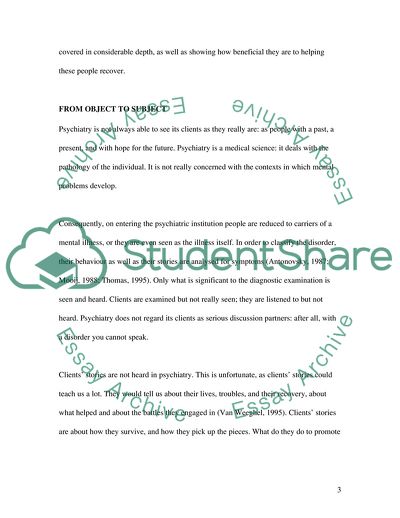Cite this document
(The Psychiatric Institution People Term Paper Example | Topics and Well Written Essays - 2128 words, n.d.)
The Psychiatric Institution People Term Paper Example | Topics and Well Written Essays - 2128 words. Retrieved from https://studentshare.org/health-sciences-medicine/1703949-the-survivors-critique
The Psychiatric Institution People Term Paper Example | Topics and Well Written Essays - 2128 words. Retrieved from https://studentshare.org/health-sciences-medicine/1703949-the-survivors-critique
(The Psychiatric Institution People Term Paper Example | Topics and Well Written Essays - 2128 Words)
The Psychiatric Institution People Term Paper Example | Topics and Well Written Essays - 2128 Words. https://studentshare.org/health-sciences-medicine/1703949-the-survivors-critique.
The Psychiatric Institution People Term Paper Example | Topics and Well Written Essays - 2128 Words. https://studentshare.org/health-sciences-medicine/1703949-the-survivors-critique.
“The Psychiatric Institution People Term Paper Example | Topics and Well Written Essays - 2128 Words”. https://studentshare.org/health-sciences-medicine/1703949-the-survivors-critique.


